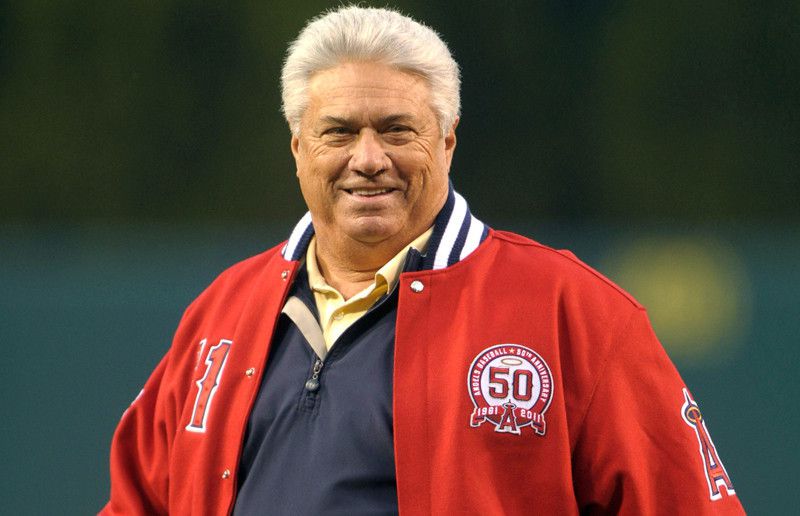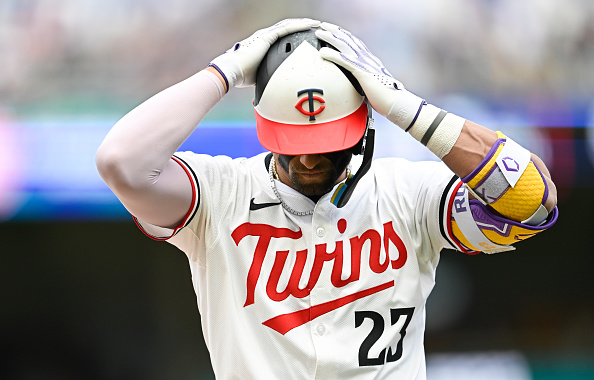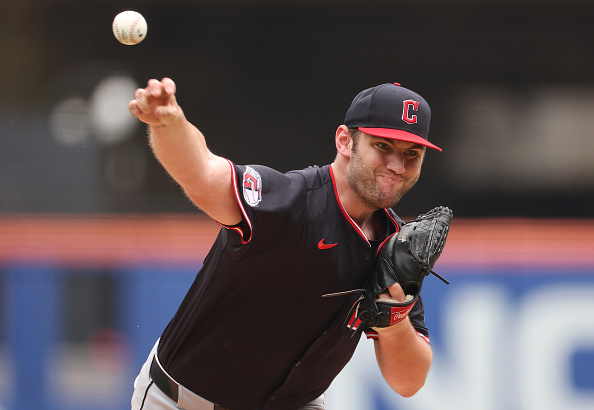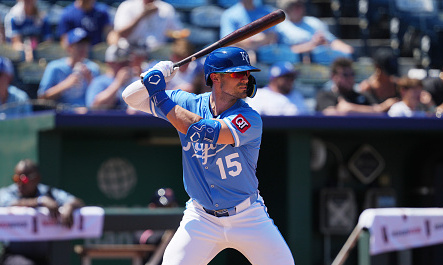As Los Angeles Angels fans await the rumored start of the franchise’s 60th MLB season, Prime Time Sports Talk is going to go back and compile all-decade teams beginning with their first decade of existence.
On December 6, 1960, Gene Autry was awarded the expansion club that would become the Los Angeles Angels. Eight days later, they drafted 28 players in an expansion draft that would feature the selection of five players on this all-decade team.
The Angels would open their first season in Los Angeles’ Wrigley Field before playing a couple seasons at the brand-new Chavez Ravine before opening and moving into their current home in Anaheim during the latter half of the decade. While the Angels did not appear in the post-season during their first decade, they would field notable All-Stars, Gold Glove infielders, and a Cy Young award winner.
The 1960’s Angels would shape the gritty Angels clubs to follow in latter decades. Here is the Angels all-decade team from 1961 through 1969.
First base – Lee Thomas
Lee Thomas’ acquisition with Ryne Duren from the New York Yankees in exchange for Bob Cerv a month into the Angels’ inaugural 1961 season was the first great trade in franchise history. After appearing in only two MLB games with the Yankees, Thomas would play 130 games for the Halos his rookie season, hitting .284 with 24 home runs, 70 runs batted in, and finishing third in the American League Rookie of the Year voting.
Thomas went on to appear in his only two All-Star games and finish 11th in MVP voting his sophomore season of 1962 hitting .290 with career high 26 home runs and 104 runs batted in. The Angels would ultimately trade Thomas to Boston in June of 1964 after three and a half above-average seasons for the Angels.
Second base – Bobby Knoop
After eight minor league seasons, 1963 Rule V selection Bobby Knoop became one half of arguably the best double-play combination of the 1960’s. Knoop would earn three Gold Glove awards and was the starting second baseman for the 1966 American League All-Star squad.
While not known as a tremendous offensive threat, Knoop would lead the AL in triples in 1966 and earned MVP votes in two of his six seasons as the Angels starting second baseman. Knoop would go on to have an extended career with the Angels has a base coach in later decades, but it’s his play in the field that lands him on this team.
Shortstop – Jim Fregosi
Jim Fregosi was the Angels 17th selection from the Boston Red Sox in their 1960 expansion draft. Fregosi would become the original Angels franchise player during his eleven years with the Angels before being traded to New York Mets for Nolan Ryan.
Fregosi was an All-Star shortstop in the American League five out of six seasons between 1964 and 1969 while earning the AL Gold Glove award at his position in 1967 along with double-play partner Bobby Knoop that same season. The Knoop-Fregosi double play tandem would garner the reputation as one of the best in the game for the latter part of the decade, but Fregosi was the star.
He would end his Angels career the leader of most offensive statistical categories and would go on to lead the Angels to their first postseason as a manager the following decade.
Third base – Billy Moran
We did take a little liberty at this position as Billy Moran was the Angels starting second baseman prior to the arrival of Bobby Knoop to the Angels in 1964; however, Moran did play 89 games at the hot corner during his career.
Moran was a two-time All-Star for the Angels in 1962 at the second base position and finished his four-season Angels career with a healthy .275/.318/.379 slash and 5.0 WAR. Other notable third basemen for the Angels included Felix Torres and utility players Paul Schaal and Tom Satriano.
Left field – Rick Reichardt
Reichardt was a solid defender in the outfield during his four full seasons with the Angels to finish the decade and his Angels career with a 10.1 WAR. Making his debut with the Angels at just 21 years old in 1964, Reichardt was one of the Angels’ first big prospects was top four in assists all four seasons he was the regular left fielder.
While never earning a Gold Glove at the position, Reichardt was one of the best outfielders in the league for those four seasons with Los Angeles.
Center field – Albie Pearson
The diminutive Pearson was the 30th and final selection in the Angels expansion draft and quickly became a fan-favorite as the Angels starting right fielder during the inaugural 1961 season.
Pearson would man all three outfield positions during his Angels career and was the Halos starting center fielder for the majority of his time with the club. Pearson was a spark-plug in the early Angels’ lineups and finished his 689-game stint with the franchise with a 12.3 WAR, hitting .275 across six seasons. Jose Cardenal, it’s worth noting, deserves an honorable mention for his three seasons from 1965-67.
Right field – Leon Wagner
“Daddy Wags” was the original Angels thumper in their line-up during the first three seasons of their franchise’s existence. After three seasons as a back-up left fielder with San Francisco and St. Louis, he burst onto the MLB scene in 1961, hitting .280 with 28 home runs, and 79 runs batted in.
Wagner would go on to play in three All-Star games as an Angel over the next two seasons finishing his three-season Angels career hitting .279 with 91 home runs and 243 runs batted in. His team-leading 37 home runs in 1962 would remain a club record for the next 20 seasons and he finished fourth in American League Most Valuable Player voting that season behind winner Mickey Mantle and runners-up Bobby Richardson and Harmon Killebrew.
Catcher – Buck Rodgers
Bob “Buck” Rodgers would play his entire MLB career with the Angels during the 60’s, finishing his career second in most offensive franchise categories behind Jim Fregosi. Rodgers finished second in the 1962 AL Rookie of the Year voting due primarily to his outstanding defense behind the plate.
Rodgers would lead American League catchers in runners caught stealing in three seasons while finishing in the top five for six consecutive seasons. Injuries would end Rodgers’s career in 1969 at the age of 30, but he would return to manage the Angels from 1991-94.
Starting Pitchers – Dean Chance, Ken McBride, George Brunet, Jim McGlothlin, Bo Belinksy
Dean Chance earned the first American League Cy Young award for the Angels franchise in 1964 when he completed the season with league-leading 20 wins, 1.65 ERA, and 11 shutouts. Chance finished fifth in AL Most Valuable Player voting that same season while representing the league as their starting pitcher during that summer’s All-Star game.
Ken McBride was the Angels seventh selection in the 1960 expansion draft and was a three-time All-Star for the club during their first three seasons 1961 through 1963. The injury bug struck McBride in 1964, and his MLB playing days ended a season later.
George Brunet was a consistent veteran starter for the Angels during some lean seasons from 1965-69. He would start 157 games during his Angels career, finishing his tenure with the club with a 3.13 ERA across 1047 innings.
Jim McGlothlin was a fixture in the Angels starting rotation for three seasons highlighted by his All-Star season of 1967, when he finished the year 12-8 with a 2.96 ERA and a lead-leading six shutouts.
Bo Belinsky was thrust into the spotlight during his rookie of season of 1962 after recording the first no-hitter in Angels history on May 5, 1962 against the Baltimore Orioles in his fourth career start. Belinsky will forever be remembered for this feat and his off-the-field adventures with Hollywood bombshells like Mamie Van Doren.
Relief Pitchers – Bob Lee and Minnie Rojas
Bob Lee pitched in 194 games (five starts) with the Angels between 1964 and 1966 and recorded a decade-best 58 saves while compiling a stellar 1.99 earned run average. Lee was an American League All-Star in 1967 and remained franchise leader in saves until 1979.
Minnie Rojas led the American League with 27 saves in 1967 and finished his three seasons with the Angels with a 3.00 ERA and 43 saves across 157 games and 261 innings with the franchise.
Manager – Bill Rigney
Bill Rigney was the only Angels manager until he was fired midway through the 1969 season. Rigney surprised much of the baseball world by finishing third in the American League standings during the club’s second year of existence in 1962. Rigney’s 625 victories as an Angels manager ranks him second behind Mike Scioscia in franchise history.
See additional Angels All-Decade rosters: 1970’s, 1980’s, 1990’s







